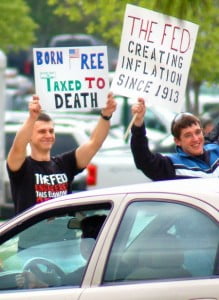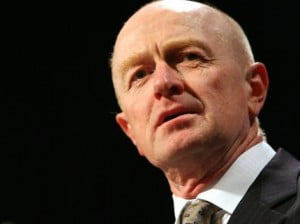 Tony O’Brien was born in Sydney, grew up in Melbourne and was drafted into the army, serving in the infantry in Vietnam for a year in 1966-7. He met and married Dinah in London where he worked as a landscape gardener before settling back in Adelaide with their three children.
Tony O’Brien was born in Sydney, grew up in Melbourne and was drafted into the army, serving in the infantry in Vietnam for a year in 1966-7. He met and married Dinah in London where he worked as a landscape gardener before settling back in Adelaide with their three children.
In the late 1990s Tony’s statistical flair began to illuminate the pages of PROGRESS, the journal of Prosper Australia, so I quickly inducted him into the Land Values Research Group as its research coordinator. I found Tony’s ease with meaningful statistical data difficult to believe. It was as though statistics had been his training.
He was a remarkable Australian, not only identifying with the underdog, but pointing to ways he and she might retain the fruits of their labours. Tony’s Land Monopoly and Income Polarisation in Australia 1950 to 2000 has been widely distributed since publication in October 2001.
Numerous e-mail exchanges between Tony and me revealed his flair with the English language and love of music. Learning of my interest in folk music, Tony pointed me to folk songs old and new, including Leon Rosselson’s Diggers Song, the poignant lyrics of which are reproduced here:
The Diggers’ Song
(The World Turned Upside Down)
In 1649, to Saint George’s Hill
A ragged band they called The Diggers came to show the people’s will.
They defied the landlords, they defied the law
They were the dispossessed reclaiming what was theirs.
We come in peace, they said, to dig and sow.
We come to work the land in common and to make the waste-land grow.
This earth divided, we will make whole
So it can be a common treasury for all.
The sin of property, we do disdain
No man has any right to buy and sell the earth for private gain
By theft and murder, they took the land
Now everywhere the walls spring up at their command.
They make the laws, to chain us well.
The clergy dazzle us with heaven or they damn us into hell.
We will not worship the god they serve
The god of greed who feeds the rich while poor men starve.
We work, we eat together, we need no swords.
We will not bow to the masters nor pay rent to the lords.
We are free men, though we are poor.
You diggers all stand up for glory, stand up now.
From the men of property
The orders came
They sent the hired men and troopers
To wipe out the Diggers claim.
Tear down their cottages
Destroy their corn.
They were dispersed
But still the vision lingers on.
You poor take courage
You rich take care
The earth was made a common treasury
For everyone to share
All things in common
All people one
We come in peace.
… The order came to cut them down.



 GOVERNMENT INTERVENTION, ANYONE?
GOVERNMENT INTERVENTION, ANYONE? IT GETS WORSE …
IT GETS WORSE …




